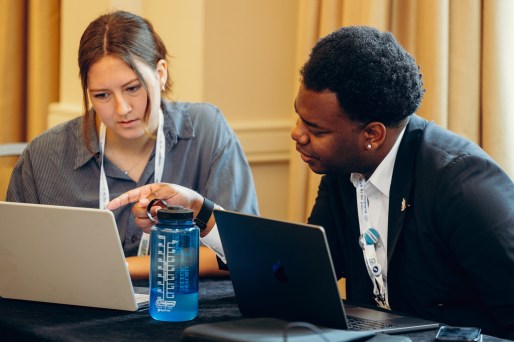The Significance of Fact-Checking worldwide of News Online
The prevalence of misinformation in today's online news landscape has reached disconcerting levels. Fact-checking organizations play an essential function in counteracting this pattern. They verify cases and enhance the credibility of journalism. The efficiency of these organizations frequently hinges on their approaches and public understanding. As audiences navigate this complex environment, the effects of their searchings for might form the future of news consumption and depend on. What does this mean for the honesty of info moving ahead?

The Rise of Misinformation in the Digital Age
Just how has the arrival of electronic innovation contributed to the spread of false information? The quick development of the web and social media platforms has actually helped with the circulation of info at an extraordinary rate. Users can share write-ups, videos, and point of views with a mere click, typically without verifying the web content's accuracy. Formulas focus on astonishing or psychologically billed material, leading to a spreading of misleading narratives that catch interest.
Additionally, the anonymity afforded by digital platforms enables people to spread out incorrect info without accountability (stnews.live). False information flourishes in echo chambers, where individuals are revealed largely to viewpoints that strengthen their ideas, better entrenching frauds. The saturation of info can bewilder users, making it testing to discern trustworthy resources from unstable ones. Consequently, misinformation has actually ended up being a prevalent concern in the digital landscape, impacting public point of view and count on legitimate news resources
The Role of Fact-Checking Organizations
Fact-checking organizations play a crucial function in improving the credibility of journalism by verifying cases made in news records. Their initiatives are essential in combating false information, making certain that exact info prevails in the digital landscape. By holding media outlets answerable, these companies add significantly to notified public discourse.
Enhancing Trustworthiness in Journalism
While misinformation multiplies in the electronic age, fact-checking companies play an essential role in improving the trustworthiness of journalism. These companies meticulously verify insurance claims made in news posts, public declarations, and social media sites posts, making certain that info disseminated to the general public is exact and reliable. By supplying independent assessments, they function as an essential resource for journalists, aiding them maintain high criteria of stability. On top of that, their efforts advertise openness in media, cultivating public trust fund. As audiences become significantly discerning, the visibility of trustworthy fact-checking entities can differentiate reliable news sources from those that might spread out frauds. Eventually, the commitment of fact-checking organizations to copyright truthfulness is crucial for the health of autonomous discussion.
Combating Misinformation Properly
As false information continues to spread out quickly across digital systems, the role of fact-checking companies ends up being increasingly vital in the battle for accurate information. These organizations work as watchdogs, inspecting claims made by public figures and media electrical outlets to assure responsibility. By using rigorous study techniques and expert analysis, they validate truths and make clear misleading stories. Their findings are distributed through different networks, informing the general public and fostering crucial reasoning. Furthermore, collaborations with social media systems improve their reach, permitting punctual flagging of incorrect details. As electronic literacy grows, the influence of fact-checking organizations is vital in equipping audiences to determine reality from fallacy, eventually adding to a more enlightened culture.
Just How False Information Affects Public Assumption
False information significantly weakens count on in media, leading audiences to wonder about the credibility of news sources. Therefore, individuals often gravitate towards electrical outlets that reinforce their existing ideas, contributing to the polarization of opinions. This dynamic produces a fragmented information landscape, where shared understanding comes to be significantly tough to achieve.
Count on Media

Rely on media has actually become increasingly delicate in the digital age, where the fast spread of incorrect info can skew public assumption. As misinformation proliferates throughout social networks and online systems, audiences often locate it challenging to determine qualified resources from undependable ones. This unpredictability promotes apprehension, leading several individuals to question the motives behind news reporting. Trust fund in established media outlets has actually diminished, as customers significantly turn to different sources that might lack rigorous content criteria. This erosion of depend on not only affects specific beliefs however likewise weakens the collective capacity to involve in informed conversations. Eventually, the integrity of journalism goes to stake, highlighting the essential demand for reliable fact-checking to recover self-confidence in the media landscape.

Polarization of Opinions
The raising uncertainty towards click resources conventional media has added to an expanding polarization of point of views amongst the general public. False information, usually disseminated through social networks and online systems, plays a substantial role in forming distinct ideological splits. People regularly see look for info that lines up with their pre-existing ideas, enhancing their point of views while disregarding opposing viewpoints. This echo chamber impact increases departments, resulting in a fragmented public discourse where consensus becomes increasingly evasive. In addition, sensationalized narratives thrive in this environment, additionally skewing public understanding and fostering distrust in reliable resources. As polarization rises, the need for efficient fact-checking becomes paramount to connect gaps and advertise notified discussions, inevitably guaranteeing an extra cohesive culture with the ability of steering intricate issues.
Techniques for Effective Fact-Checking
Efficient fact-checking counts on a methodical technique that consists of extensive research study, verification of sources, and vital evaluation of insurance claims. A fundamental method is cross-referencing info from multiple qualified sources to confirm its precision. Fact-checkers commonly utilize specialized databases and archives to map the origin of specific declarations, guaranteeing that the reported details aligns with documented proof.
An additional vital approach involves inspecting the context in which claims exist. Misleading details can develop from out-of-context quotations or selective information use. By analyzing the wider story, fact-checkers can recognize prospective prejudices or misinterpretations.
Engaging with experts in pertinent fields can provide clarity and insight that boosts the fact-checking procedure. This collaboration can uncover nuances that laypeople may overlook - stnews.live. Eventually, a self-displined approach combining these techniques cultivates an extra enlightened public, boosting the integrity of details shared in the electronic age
The Influence of Social Media on News Usage
Exactly how has social networks changed the method individuals take in news? The appearance of platforms like Facebook, Twitter, and Instagram has notably modified news intake patterns. News is now shared quickly, enabling users to access real-time updates and engage with material through likes, shares, and remarks. This immediacy has promoted a preference for bite-sized info, commonly at the expense of extensive analysis.
In addition, social networks allows individualized news feeds, where formulas curate content based upon individual choices, developing echo chambers that might limit direct exposure to varied viewpoints. The role of typical news outlets has actually diminished as individuals significantly depend on peer suggestions and trending subjects. The reputation of information is usually endangered, as sensationalism can overshadow factual coverage. On the whole, social media sites has actually improved news usage, stressing rate and customization while challenging the standards of journalistic stability.
Encouraging Audiences to Determine Trustworthy Resources

Additionally, checking out the authorship and business history of news posts can expose prospective biases. Cross-referencing information throughout multiple reliable outlets further boosts the confirmation process. Making use of digital tools, such as web browser expansions that rate the trustworthiness of internet sites, can also assist in recognizing reliable info. By proactively engaging with these sources and growing a critical mindset, target markets can better outfit themselves to determine reliable news sources, ultimately promoting an extra informed culture amidst the intricacies these days's media environment.
The Future of Journalism and Fact-Checking
As the media landscape develops, the future of journalism and fact-checking encounters both tests and possibilities. The increase of digital systems has equalized information dissemination, enabling varied voices to emerge. This has likewise led to the spreading of false information, demanding durable fact-checking systems. Journalists will increasingly depend on innovation, including AI tools, to validate realities quickly and effectively.
Collaboration in between wire service and fact-checking entities is expected to enhance integrity and transparency. Audience engagement will play a necessary duty, as educated visitors become considerable partners in recognizing reliable web content.
The need for liability and precision is most likely to grow, pushing journalists to copyright high standards in their reporting. Ultimately, the future of journalism might pivot on its capacity to adapt to technical advancements while preserving journalistic stability, making sure that fact-checking remains a foundation of reputable news.
Frequently Asked Questions
Exactly How Can I Report Misinformation I Experience Online?
To report misinformation experienced online, people can make use of platform-specific coverage devices, give clear evidence, and share the information with fact-checking companies. Involving with neighborhood conversations can also assist elevate understanding regarding the misinformation.
What Prevail Indications of Misinformation in News Articles?
Usual indications of misinformation in newspaper article consist of sensational headings, lack of legitimate resources, emotional language, inconsistent truths, and lack of writer qualifications. Viewers should critically review material for these signs to determine accuracy.
Just How Do Fact-Checkers Confirm Resources?
Fact-checkers validate resources by cross-referencing details with credible data sources, seeking advice from experts, and examining the original context of cases. They also analyze the reliability of the resources, ensuring precise and trustworthy info for public intake.
What Lawsuits Can Be Taken Against False information?
Lawful actions against false information might consist of vilification suits, cease-and-desist orders, and governing penalties. Sufferers can look for redress via civil courts, while some jurisdictions impose penalties or assents on platforms distributing incorrect information.
Exist Apps for Fact-Checking News On-The-Go?
Countless apps exist for fact-checking news on-the-go, including Snopes, FactCheck.org, and PolitiFact. These applications help users confirm insurance claims promptly, promoting educated decision-making and cultivating an extra discerning strategy to consuming news in real-time.